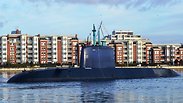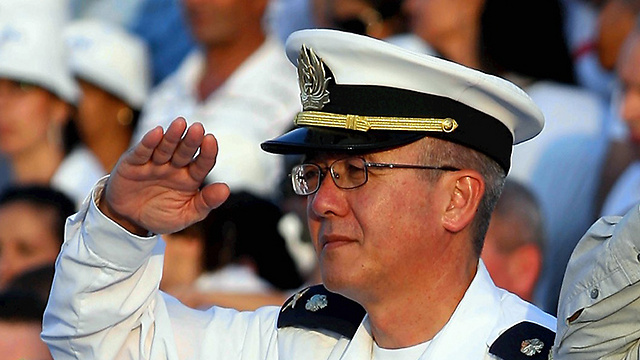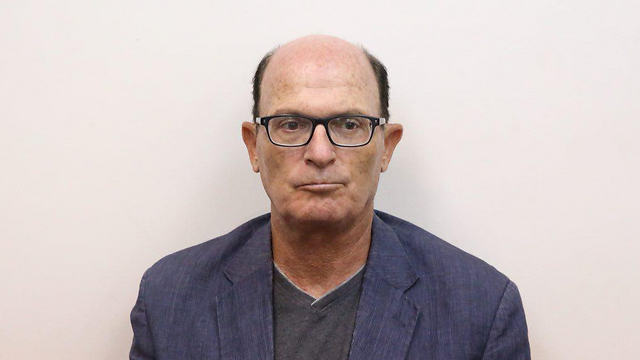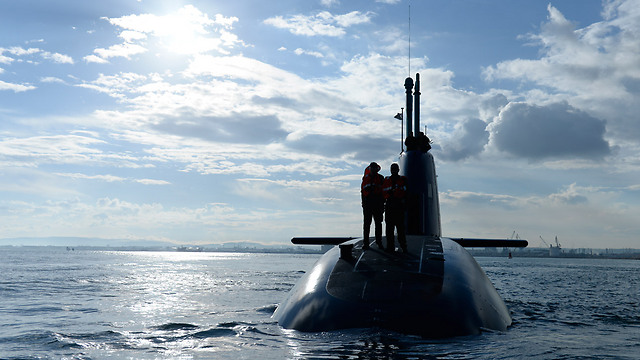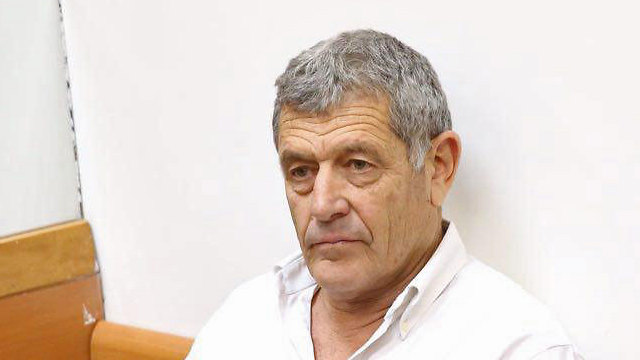Police detained former Navy commander Maj. Gen. (res.) Eliezer Marom for questioning on Tuesday as part of investigations into corruption surrounding the procurement of submarines and patrol ships from German conglomerate ThyssenKrupp—the so-called Case 3000.
Police suspect a series of crimes was committed surrounding the two deals, including bribery and money laundering.
"We've discovered a very concerning conduct with regards to security procurement deals in Israel that are worth billions," a police representative said in court Monday. "The findings (of the investigation) raise a real suspicion of ethical offenses, breach of trust, bribery, money laundering, and tax offenses."
There was a series of development in the case on Monday, with police freezing Marom's bank account. The former IDF general is suspected of having pushed to replace then-ThyssenKrupp representative in Israel, Shaike Bareket, with businessman Miki Ganor.
As part of their investigation, the police managed to arrive at an accountant's document summarizing ThyssenKrupp's activities vis-à-vis security officials in Israel regarding the acquisition of submarines and ships.
In one of the lines in the acquisition report that caught the eye of the investigators included the phrase "useful expenses," and investigators suspect that this section was actually a disguise to pay the bribe to Marom.
Police are also looking into reports of Marom and Ganor's flight in 2015 to Germany for talks with ThyssenKrupp about the possibility of replacing the subsidiary Abu Dhabi MAR with German Naval Yards, just before the deal was signed.
Marom was released to house arrest until Thursday.
Also on Monday, police arrested six additional suspects, while a court extended until Thursday the remand of three of the main suspects in the case: Miki Ganor, a close associate of Prime Minister Benjamin Netanyahu and a representative of ThyssenKrupp in Israel; Avriel Bar-Yosef, who served as the acting-national security advisor; and attorney Ronen Shemer, who works in Ganor's office.
Police also collected testimony from the former director of the Prime Minister's Office, Eyal Gabbay.
Finally, a lawyer with close ties to Netanyahu was questioned on Monday and then put on a three-day house arrest. Police sources say the lawyer was put on house arrest as part of an "investigative ploy" to put pressure on the other suspects. He was brought in for questioning again on Tuesday.

While the lawyer declined to comment on the allegations against him, the rest of the suspects have all denied the crimes attributed to them.
The case came to light in November 2016, when it was reported police were investigating suspicions of tender bias in the procurement of submarines and patrol ships from ThyssenKrupp, bribery and a conflict of interest.
Negotiations over the two deals, which amount to some NIS 10 billion ($2.8 billion), were done behind the back of then-defense minister Moshe Ya'alon, IDF Chief of Staff Gadi Eisenkot and the director-general of the Defense Ministry.
Eventually, after Ya'alon was ousted, Netanyahu pushed for the deals to be signed, even discussing the matter with German Chancellor Angela Merkel.
Netanyahu's personal lawyer, David Shimron, represented Ganor in the deal, while Bar-Yosef, a close friend of Ganor, represented the State of Israel. The prime minister has denied he had any knowledge that Shimron was involved in the submarine deal.
State Attorney Shai Nitzan decided in late February 2017 to launch a full criminal investigation into the case, while stressing Netanyahu himself was not a suspect.
As part of the investigation, police collected testimony from Ya'alon, the former director-general of the Defense Ministry Dan Harel, the legal advisor to the defense establishment Ahaz Ben-Ari, and MK Erel Margalit.
The breakthrough in the case happened when investigators uncovered the transfer of millions of shekels from ThyssenKrupp to Ganor as well as to the lawyer who has close ties to Netanyahu.
"Some of the money was given as payment for professional services, but it's unclear what a large portion of the money (was for), and it looks like bribe money," the police representative elaborated.
Police suspect Ganor was appointed ThyssenKrupp's representative in Israel thanks to the help of a senior state employee. He allegedly transferred bribe money to Bar-Yosef. The senior state employee was then allegedly hired by Ganor to promote ThyssenKrupp's projects in Israel.
Police also suspect that the lawyer who has close ties to Netanyahu has fraudulently received money to promote Ganor's deals using his ties to the top political echelons.
Due to the ongoing investigation, the signing of a memorandum of understanding between Israel and Germany on the purchase of the submarines was postponed, and the deal could be canceled if police finds criminal wrongdoings with relation to the deal.
Etti Abramov contributed to this report.
